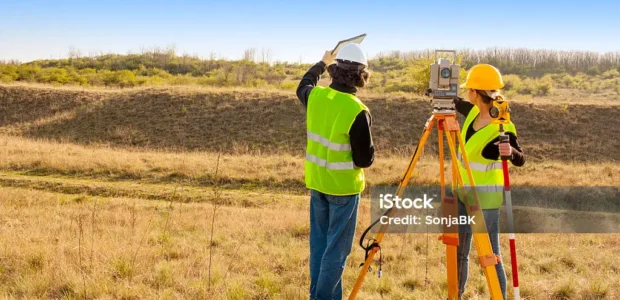Introduction to Surveyor Work
Surveyor work is a critical profession that forms the backbone of construction, engineering, and land development. Surveyors are responsible for measuring and mapping out land areas to provide accurate data for various purposes, including boundary setting, construction planning, and legal documentation. This ar ticle will explore the essential aspects of surveyor work, the skills required, and how to succeed in this field.

The Importance of Surveyor Work
Surveyor work is vital in ensuring the precision and safety of construction projects and land developments. Accurate surveying prevents legal disputes, helps in planning efficient construction projects, and aids in environmental preservation. With technology rapidly evolving, surveyors must stay updated with the latest tools and techniques to maintain accuracy and efficiency.
Skills Required for Surveyor Work
1. Mathematical Proficiency
A strong foundation in mathematics is crucial for surveyors. They need to perform complex calculations involving angles, distances, and areas to determine accurate measurements. This skill helps in the precise mapping of land and property boundaries.
2. Technological Savvy
Modern surveyor work heavily relies on technology. Familiarity with software like AutoCAD, GIS systems, and other surveying tools is essential. Staying up-to-date with technological advancements can significantly enhance a surveyor’s efficiency and accuracy.

3. Attention to Detail
Surveyors must have a keen eye for detail. Small errors in measurement can lead to significant problems in construction projects or legal disputes. Thus, precision and meticulousness are non-negotiable skills in surveyor work.
4. Communication Skills
Effective communication is vital for surveyors. They need to convey complex information in simple terms to clients, engineers, and construction workers. Strong communication skills help ensure everyone involved in a project understands the requirements and constraints.
5. Physical Stamina
Surveyor work often involves fieldwork in various weather conditions and terrains. Surveyors must be physically fit and prepared to handle challenging outdoor environments to gather accurate data.
6. Problem-Solving Skills
Surveyors frequently encounter unexpected challenges, such as inaccessible areas or unforeseen obstacles. Problem-solving skills enable surveyors to adapt their techniques and find innovative solutions to these issues.

7. Legal Knowledge
Understanding property laws and regulations is crucial for surveyors. This knowledge helps them navigate legal constraints and provide accurate, lawful services to clients.
8. Teamwork
Surveyors often work as part of a larger team on construction or development projects. The ability to collaborate effectively with other professionals, such as architects and engineers, is essential for successful surveyor work.
9. Project Management
Surveyors must manage multiple projects simultaneously, often with tight deadlines. Strong organizational and time management skills ensure that projects are completed efficiently and on schedule.
10. Continuous Learning
The field of surveyor work is constantly evolving with new techniques and technologies. A commitment to continuous learning and professional development is crucial for staying competitive in the industry.

Tools and Techniques in Surveyor Work
Traditional Surveying Tools
- Theodolites: Used for measuring horizontal and vertical angles.
- Total Stations: Combine theodolites and electronic distance measurement devices for more accurate readings.
- GPS Devices: Provide precise location data for mapping and boundary setting.
Modern Surveying Techniques
- LiDAR (Light Detection and Ranging): Uses laser light to measure distances and create high-resolution maps.
- Drones: Offer aerial views and data collection capabilities for large or inaccessible areas.
- 3D Scanning: Provides detailed three-dimensional images of landscapes and structures for analysis.

Challenges in Surveyor Work
Surveyor work comes with its own set of challenges. These include dealing with difficult terrains, changing weather conditions, and the need for precise measurements under pressure. Surveyors must also stay updated on the latest regulations and technological advancements to remain relevant and effective in their roles.
Career Paths and Opportunities in Surveyor Work
Surveyor work offers diverse career paths and opportunities for advancement. Depending on your interests and skills, you can specialize in various areas of surveying:
1. Land Surveying
Land surveyors focus on determining property boundaries and land features. This specialization is crucial for real estate transactions, construction, and land development. Land surveyors often collaborate with architects, engineers, and developers to provide essential data for planning and construction.
2. Construction Surveying
Construction surveyors ensure that building projects are executed according to design plans and specifications. They play a vital role in setting out construction sites, monitoring project progress, and verifying the accuracy of the construction process. Construction surveyors are integral to the successful completion of infrastructure projects, such as roads, bridges, and buildings.

3. Hydrographic Surveying
Hydrographic surveyors map and measure bodies of water, including oceans, rivers, and lakes. This specialization is essential for navigation, maritime construction, and environmental studies. Hydrographic surveyors use specialized equipment, such as sonar and underwater GPS, to collect accurate data about water depths and seabed features.
4. Geodetic Surveying
Geodetic surveyors measure large-scale geographic areas and monitor natural phenomena, such as earthquakes and volcanic activity. This specialization requires advanced knowledge of geodesy and satellite technologies. Geodetic surveyors contribute to the accuracy of global positioning systems (GPS) and other geospatial technologies.
5. Environmental Surveying
Environmental surveyors assess the impact of construction and development projects on the environment. They analyze soil, water, and vegetation samples to ensure compliance with environmental regulations and standards. Environmental surveyors play a critical role in preserving natural habitats and promoting sustainable development.
Conclusion
Surveyor work is a challenging yet rewarding profession that plays a crucial role in construction, engineering, and land development. By mastering the essential skills and staying updated with the latest tools and techniques, surveyors can ensure their success in this dynamic field.
FAQs
Q1: What qualifications do I need to become a surveyor?
A1: Typically, a degree in surveying, geomatics, or a related field is required. Licensure and certification vary by region.
Q2: How do surveyors use GPS in their work?
A2: GPS helps surveyors determine precise locations and measurements, essential for mapping and setting boundaries.
Q3: What is the role of technology in modern surveying?
A3: Technology has revolutionized surveying by providing tools that increase accuracy, efficiency, and the ability to work in challenging environments.
External Resources
For more information on the latest surveying technologies and techniques, visit the https://in.indeed.com/
For More blog vist Visit:voocheez.com

